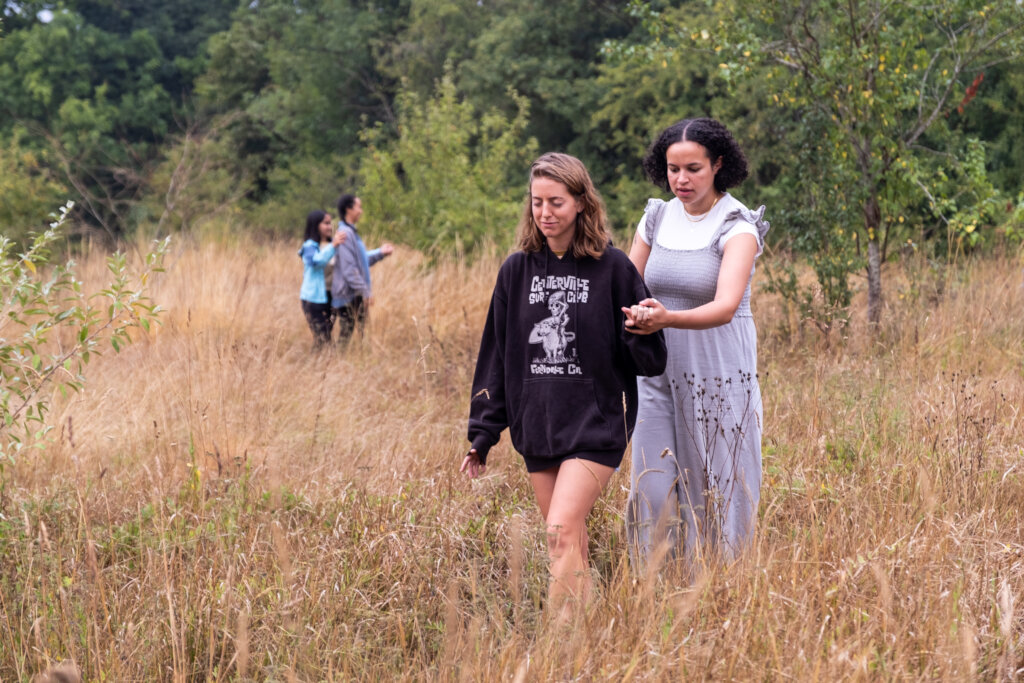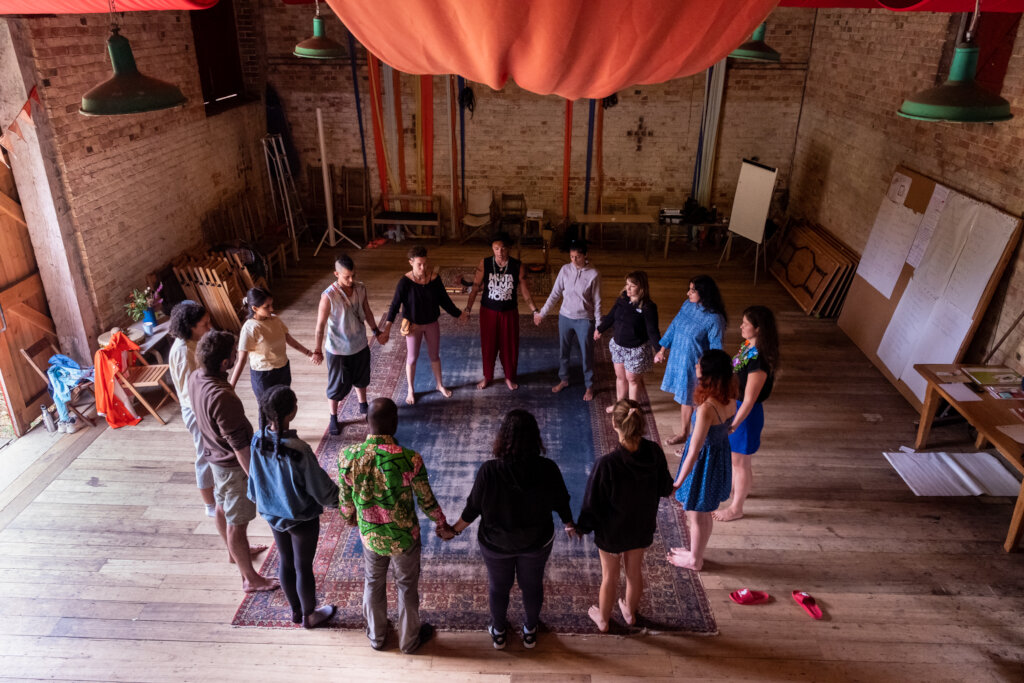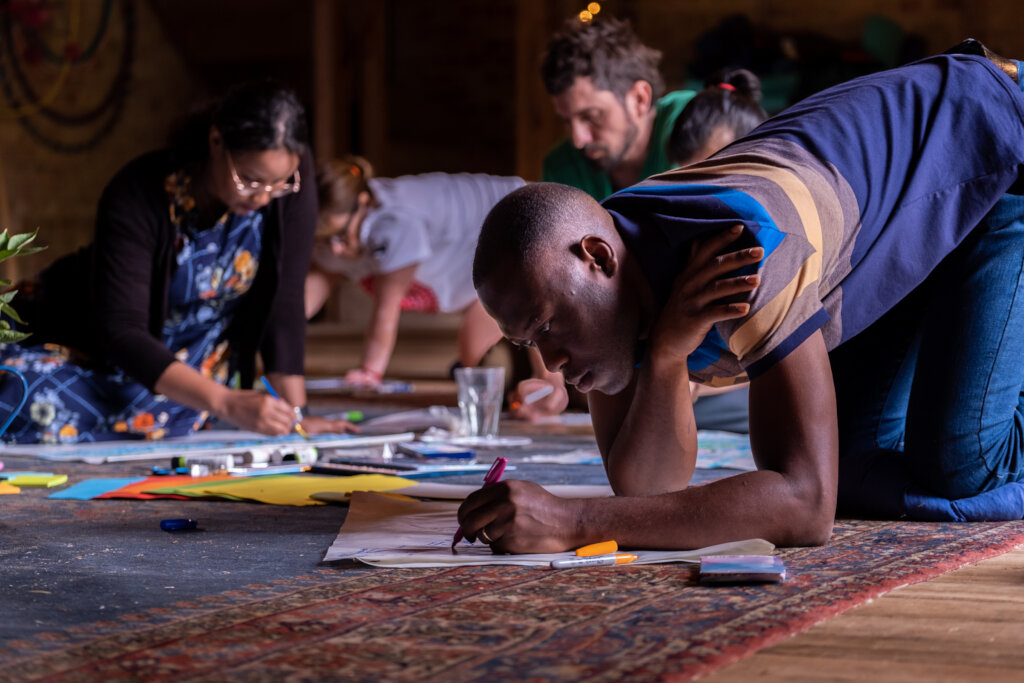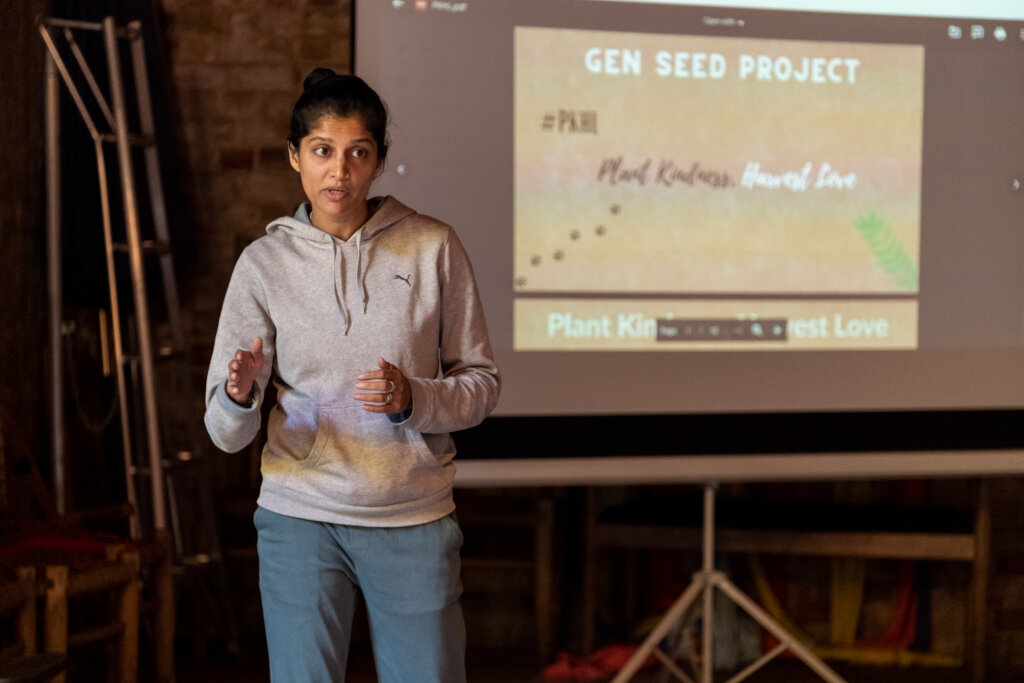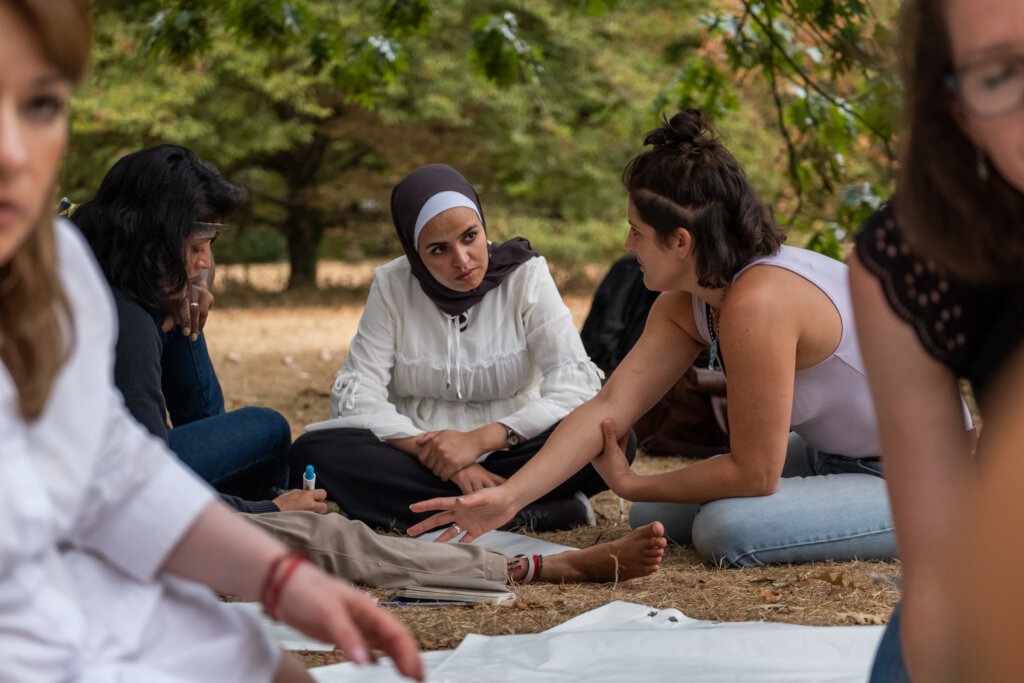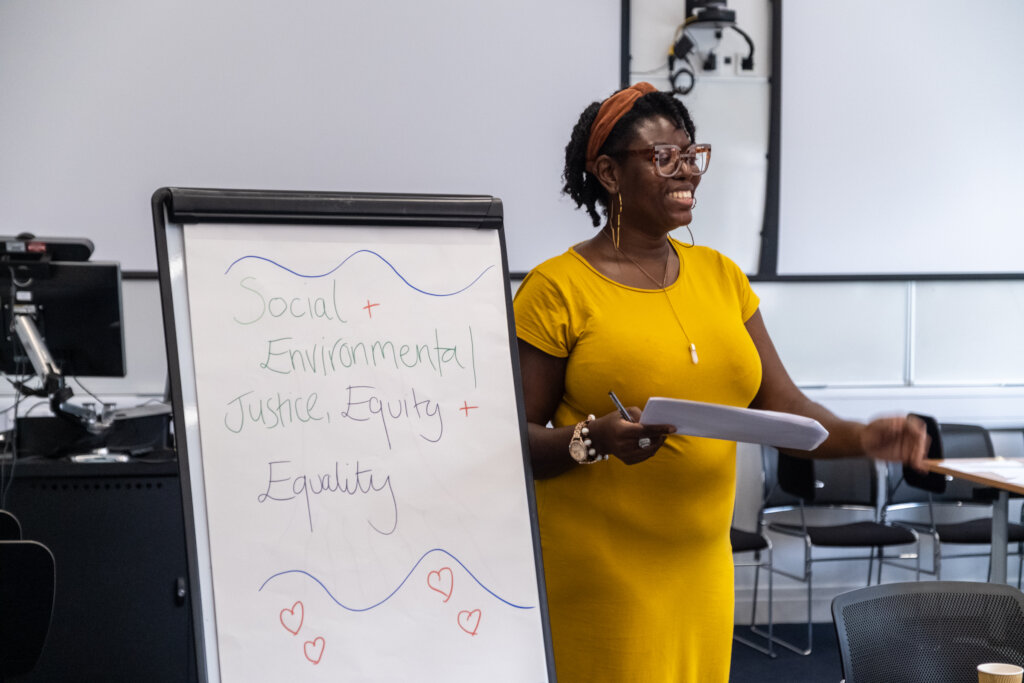![Event poster]()
Event poster
Throughout human history, and in many indigenous societies and cultures today, the passage from adolescence into adulthood has been marked by initiatory ceremonies and structured, supervised ‘rites of passage’. While adulthood initiation rites are culturally and contextually specific, they share a common goal: to transform young people into fully-fledged, mature humans. Unfortunately, contemporary ‘Western’ society has largely done away with these rites: the world over, youth are growing into adulthood without ceremonies or rituals to mark their transitions. They also lack the strong containers needed for facing themselves, reflecting on their dreams and strengths, and preparing them to fulfil their future roles and responsibilities within their family and society. Similarly, adults are moving into the final phase of their lives without initiations or honouring ceremonies, becoming merely ‘olders’ rather than the ‘elders’ the world so very much needs.
Indeed, many of the urgent, interconnected crises humanity is facing stem in part from the fact that we are living in a world of uninitiated adults, governed by uninitiated leaders. Meanwhile, around the world, many cultures’ rites of passage practices have been outlawed, shamed, or shut down, while those that do continue have, in some instances, been reduced to a shell of their former complexity, nuance and power.
These thoughts inspired our December 2021 In Conversation event. We hosted a GEN In Conversation about Rites of Passage in the 21st Century, moderated by Rachael, an attorney with expertise in community land protection, land tenure security, access to justice, and legal empowerment. Rachel was in conversation with a deeply inspiring group, who are all working on reviving, reinventing or maintaining rites of passage in their communities. We heard perspectives from Kenya with Dr Karambu, who is renowned for her work in innovative and sustainable models of development & peacebuilding, women’s human rights and global leadership programs around the world, and Naomi, who co-founded an initiative working with young vulnerable women and girls from rural communities on menstrual hygiene and empowerment. The discussion was further enriched by Hugu, a tribal mobiliser and organiser of Indigenous Taiwan based in Pongso no Tao, and Max, who works on researching and developing modern forms of rites of passage in the UK.
Together, we had a lively discussion about the kinds of rites of passage that exist in the world today to support young people and adults as they move through key life phases. Naomi and Dr Karambu talked about their experiences and challenges in creating new rites of passage that maintain the powerful content their ancestors perfected but in new forms more suited to the present. Hugu talked about rites of passage in Taiwan, and how his work supports the communities he is part of to maintain and revive meaningful rites of passage locally. Max brought experiences from reinventing rites of passage in the UK, and reconnecting young people from urban settings to nature.
We are pleased to share the full recording of the event with our GlobalGiving donors. The current planetary crises demand that humans radically adopt new processes, practices, ideologies, and ways of working. We need a legion of initiated adults to lead us. But how can we revive or restore rites of passage to provide this powerful experience to the young people in our communities? Watch our conversation to hear our thought-provoking discussion.
Speakers bio's:
Rachael Knight is an attorney with expertise in community land protection, land tenure security, access to justice, and legal empowerment. She is currently a Senior Associate on the Legal Tools for Citizen Empowerment team at the International Institute for the Environment and Development (IIED). She helped to found Namati, and created Namati’s Community Land Protection Program, then served as its Director from 2012-17 and as its Senior Advisor from 2018-2019. In this capacity, together with land rights advocates throughout Africa, she co-created an integrated model of community land protection that is now practised around the world. Previously, she was Director of the International Development Law Organization’s Community Land Titling Initiative, and has worked as a consultant for FAO since 2004. She supports governments to draft land laws that formalize customary land rights and protect community lands, and has written various books and guides for community land protection advocates and activists, available at: https://namati.org/ourwork/communityland/community-land-protection-publications.
Daktari Karambu Ringera
Born and raised in Meru, Kenya, Dr Ringera earned her PhD in intercultural communication in 2008 from the University of Denver. She is an alumna of Natal University, South Africa, the Iliff School of Theology in Colorado. She received her Bachelor of Education degree and Postgraduate Diploma in Mass Communication from the University of Nairobi, Kenya. Dr Ringera is also a lecturer at the University of Nairobi.
Dr Ringera is a 2016 Cordes Social Entrepreneurs Fellow; a 2015/16 Next Generation Leader Fellow of the McCain Institute for International Leadership, USA; the 2015 Life Achievement Award and 2015 Master Scholar Award winner, University of Denver, USA; and the 2012 African Achievers Award, UK – for her cutting edge work in innovative and sustainable models of development & peacebuilding, women’s human rights and global leadership programs around the world.
She has used her extensive academic background and international experience to design and implement effective models of community engagement, women’s grassroots programs, collaborative problem solving, preemptive and post-conflict reconciliation, and health campaigns. In Meru, Kenya, she has built a successful, working model of “Amani Homes,” community homes of peace for orphans and vulnerable children, and Tirigi (“the place of abundance”), a permaculture centre that trains people in the community on how to develop and sustain successful food sovereignty projects. Tiriji has become a training centre for peace and leadership programs. Karambu is a visionary, an activist, a compassionate, committed, formidable force for change, and an inspiration to all who meet her.
Naomi Mwangi
A strong feminist with world change passion, working at International Peace Initiatives (IPI) as the Executive Director. Naomi cofounded Kila Dada Initiative to work with young vulnerable women and girls from rural communities on menstrual hygiene and empowerment. She is a community hub representative at the Nile Journeys, a certified Gender Equity and Reconciliation International facilitator to bring the lost healing into the world. Naomi has hosted two Kenya Global Youth Peace Summits in Meru, Kenya gathering young youths from different parts of the world but mainly Africa. She is a well-known facilitator at the New Generation Leaders Program (NGL) empowering young activist leaders looking for a path to take and own. With all these motivations, Naomi is the founder of Ubuntu Voices International (UVI) that works with young people to heal their ancestral wounds through the ubuntu philosophy, ¨I am because you are.¨ In her belief in oneness, rites of passage for women in deepening their closing and openings in life. Naomi is taking more opportunities to keep her heart open on learning and exploring with no judgements.
Sutej Hugu
Sutej Hugu is a tribal mobiliser and organizer of Indigenous Taiwan based in Pongso no Tao. In his role as Regional Coordinator for East and North Asia of the ICCA Consortium, he has also supported cross-regional networking in the Austronesia – the Indian & Pacific Oceans, helped establish national working groups for ICCAs in China and Mongolia, regional working group for marine territories of life in East Austronesia & Pacific Islands, and helped launch the Taiwan Indigenous Conserved Territories Union (TICTU), a federation for the 748 tribal communities of the 16 ethnic groups whose territories overlap almost entirely with state protected areas and national forests. He is the Chief Adviser of the Indigenous Taiwan Self-Determination Alliance (ITW-SDA) since 2019, and mentoring the Indigenous leadership kernel “On the Indigenous Way.” In 2021, he initiated the workshop series: “Solidarity Exchange on Indigenous decolonization and sustainable self-determination for sustaining territories of life” with partners from Asia, Scandinavia and Latin America.
Max Girardeau
Max Girardeau has been researching and developing modern forms of rites of passage for 6 years through his work with The Visionaries. He trained as a wilderness rites of passage guide with the School of Lost Borders, is a qualified Mountain Leader and Trauma & Mental Health-informed Schools Practitioner. He has extensive experience with The Way Of Council and is passionate about ecocentric approaches to child and community development. Support The Visionaries on Patreon.
Thank you for your support!
(Please note this author has permission to use all of the above names).
Links:
![Share on Twitter]()
![Share on Facebook]()
